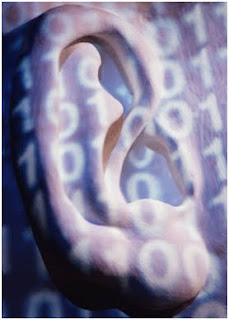 11/16/2010
11/16/20109:30 am - 11:30 am
Office of Civil Rights (Washington DC)
Section 504 Information and Updates
Glenforest School – Auditorium
1041 Harbor Drive
West Columbia, SC
PRO-Parents of SC
For More Information or To Register Call:
1-800-759-4776 or (803) 772-5688 or go to:
www.proparents.org to Sign Up
11/16/20106:30 pm - 8:30 pm
Getting and Keeping the First Job Workshop
Laurens County DSS
93 Human Services Road
Laurens, SC
Rene Sharkey, PRO-Parents of SC
South Carolina Special Kids Project
Project Coordinator
For More Information or To Register Call:
1-800-759-4776 or (803) 772-5688
11/17/201010:00 am - 12:00 pm
Positive Behavior Interventions (PBI) Workshop
SCYAP
3815 Montague Avenue
North Charleston, SC
Gayle Munn, PRO-Parents of SC
Region 1, Education Coordinator
For More Information or To Register Call:
1-800-759-4776 or (803) 772-5688
11/17/201011:30 am - 1:00 pm
*** WEBINAR ***
The Benefit Bank of SC
Internet and Phone Line Required to Participate
Registration Closes on November 16th, 2010 at 5:00 pm
Melanie Burnett, PRO-Parents of SC
South Carolina Adult Sibling Leadership Network
For More Information or To Register Call:
1-800-759-4776 or (803) 772-5688
11/17/20102:00 pm - 3:30 pm
*** WEBINAR ***
Positive Behavior Interventions (PBI) Webinar
Internet and Phone Line Required to Participate
Registration Closes on November 16th, 2010 at 5:00 pm
Tanya Inabinet, PRO-Parents of SC
Region 2, Education Coordinator
For More Information or To Register Call:
1-800-759-4776 or (803) 772-5688
11/18/201010:00 am - 12:00 pm
Transition Into Special Education (Early Intervention) Workshop
Anderson DDSN
221 McGee Road
Anderson, SC
Susan Bruce, PRO-Parents of SC
Region 3, Education Coordinator
For More Information or To Register Call:
1-800-759-4776 or (803) 772-5688
11/18/20107:00 pm - 8:00 pm
Journey to Adulthood – What Parents Need to Know Workshop — Sexuality Training for Parents of Youth with Disabilities (Part I)
Saxe Gotha Presbyterian Church
5503 Sunset Blvd
Lexington, SC
Rene Sharkey, PRO-Parents of SC
South Carolina Special Kids Project
Project Coordinator
For More Information or To Register Call:
1-800-759-4776 or (803) 772-5688
11/22/20106:00 pm - 8:30 pm
Individual Education Program (IEP) Workshop
Oakdale Elementary
1129 Oakdale Drive
Rock Hill, SC 29730
Susan Bruce, PRO-Parents of SC
Region 3, Education Coordinator
For More Information or To Register Call:
1-800-759-4776 or (803) 772-5688
11/23/20106:00 pm - 8:00 pm
Journey to Adulthood – What Parents Need to Know Workshop — Sexuality Training for Parents of Youth with Disabilities
Outreach Family Fellowship (YANA)
136 Pee Dee Church Road
Dillon, SC
Gayle Munn, PRO-Parents of SC
Region 1, Education Coordinator
For More Information or To Register Call:
1-800-759-4776 or (803) 772-5688
11/29/20109:00 am - 12:00 pm
Positive Behavior Interventions (PBI) Workshop
Beaufort Marine Corps Air Station
Building 807
Beaufort, SC
Gayle Munn, PRO-Parents of SC
Region 1, Education Coordinator
For More Information or To Register Call:
1-800-759-4776 or (803) 772-5688
11/30/201010:00 am - 12:00 pm
Transition Into Special Education (Early Intervention) Workshop
Williamsburg DDSN Office
61 Greenlee Street
Kingstree, SC
Gayle Munn, PRO-Parents of SC
Region 1, Education Coordinator
For More Information or To Register Call:
1-800-759-4776 or (803) 772-5688
12/02/20109:30 am - 11:30 am
ADD / ADHD Workshop
Pediatric TEAM
1807 A East Main Street
Easley, SC
Susan Bruce, PRO-Parents of SC
Region 3, Education Coordinator
For More Information or To Register Call:
1-800-759-4776 or (803) 772-5688
12/02/201012:00 pm - 2:00 pm
Communications Workshop
Pediatric TEAM
1807 A East Main Street
Easley, SC
Susan Bruce, PRO-Parents of SC
Region 3, Education Coordinator
For More Information or To Register Call:
1-800-759-4776 or (803) 772-5688
12/06/201010:00 am - 12:00 pm
Getting and Keeping the First Job Workshop
Sponsored By: York County DDSN
McCelvey Center
212 East Jefferson Street
York, SC 29745
Susan Bruce, PRO-Parents of SC
Region 3, Education Coordinator
For More Information or To Register Call:
1-800-759-4776 or (803) 772-5688
12/08/20106:00 pm - 8:30 pm
Individual Education Program (IEP) Workshop
United Ministries
503 Vardry Street
Greenville, SC 29601
Susan Bruce, PRO-Parents of SC
Region 3, Education Coordinator
For More Information or To Register Call:
1-800-759-4776 or (803) 772-5688
12/09/20106:30 pm - 8:30 pm
Individual Education Program (IEP) Workshop
The Master’s Baptist Church
Subertown Road
Whitmire, SC
Susan Bruce, PRO-Parents of SC
Region 3, Education Coordinator
For More Information or To Register Call:
1-800-759-4776 or (803) 772-5688
12/14/20106:30 pm - 8:30 pm
Getting and Keeping the First Job Workshop
Family Connection of SC
Spartanburg Library
151 South Church Street
Spartanburg, SC
Susan Bruce, PRO-Parents of SC
Region 3, Education Coordinator
For More Information or To Register Call:
1-800-759-4776 or (803) 772-5688
To view the full calendar of events, follow the link in this post's title.
 ScienceDaily (Dec. 13, 2010) — Losing a limb can be a devastating experience, and while electrically powered prostheses can serve as a replacement for a lost arm, they are notoriously difficult to operate, and will never fully replace normal hand function. Researchers at the Norwegian University of Science and Technology (NTNU) are working to improve this situation through the use of smartphone technology. The technology, called an accelerometer, gives users a better sense of the orientation of their artificial limb -- thus making the limb easier to operate.
ScienceDaily (Dec. 13, 2010) — Losing a limb can be a devastating experience, and while electrically powered prostheses can serve as a replacement for a lost arm, they are notoriously difficult to operate, and will never fully replace normal hand function. Researchers at the Norwegian University of Science and Technology (NTNU) are working to improve this situation through the use of smartphone technology. The technology, called an accelerometer, gives users a better sense of the orientation of their artificial limb -- thus making the limb easier to operate.



























